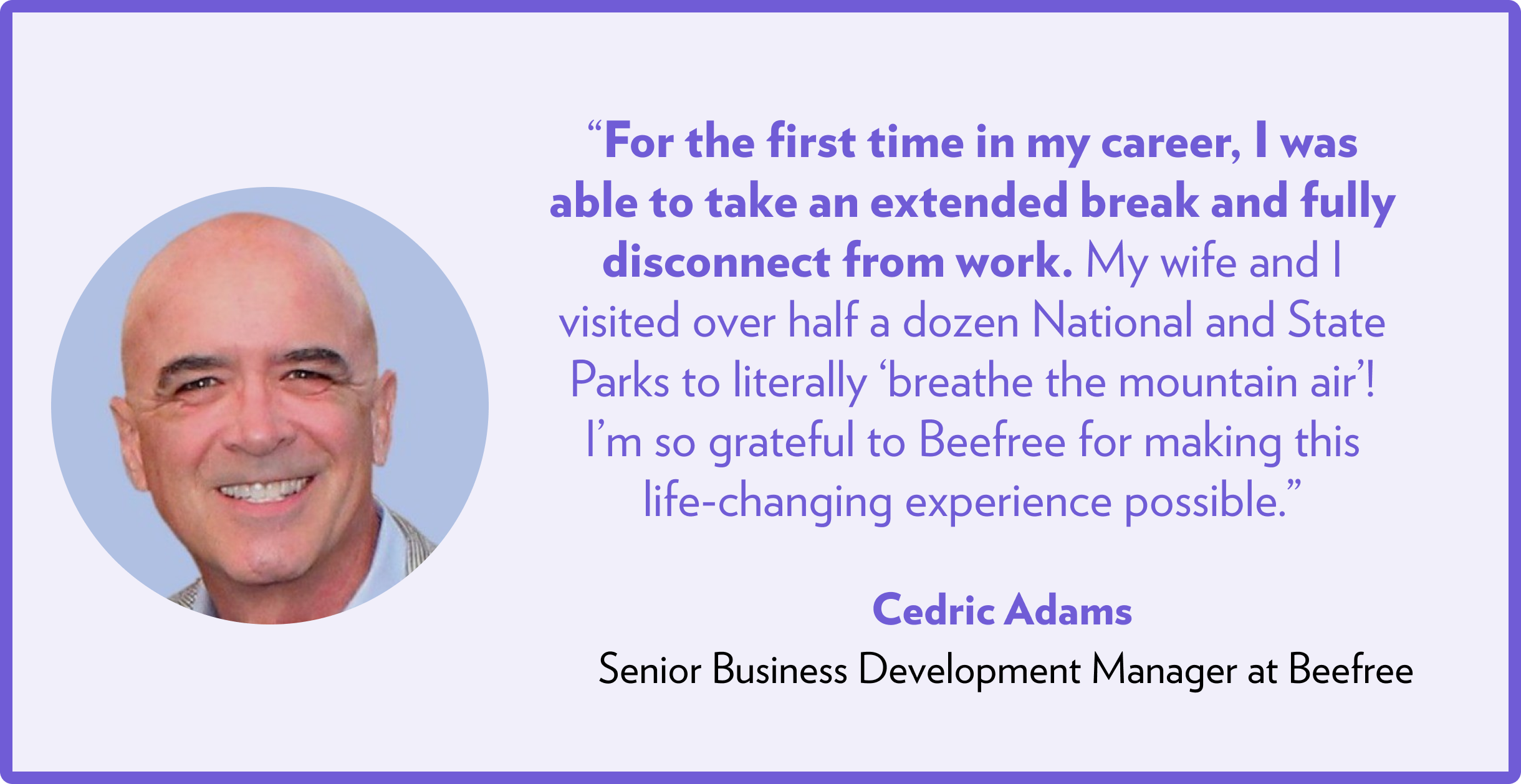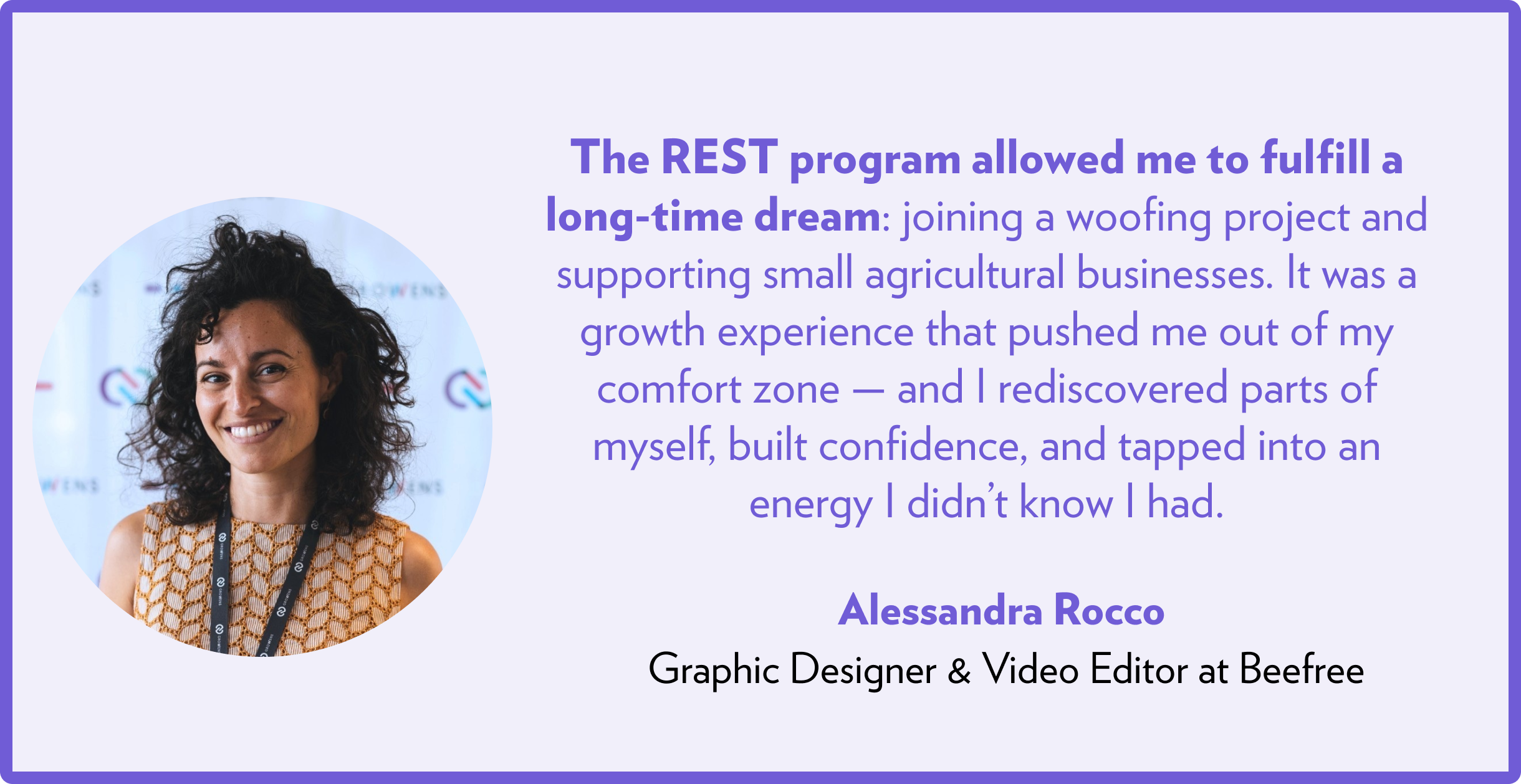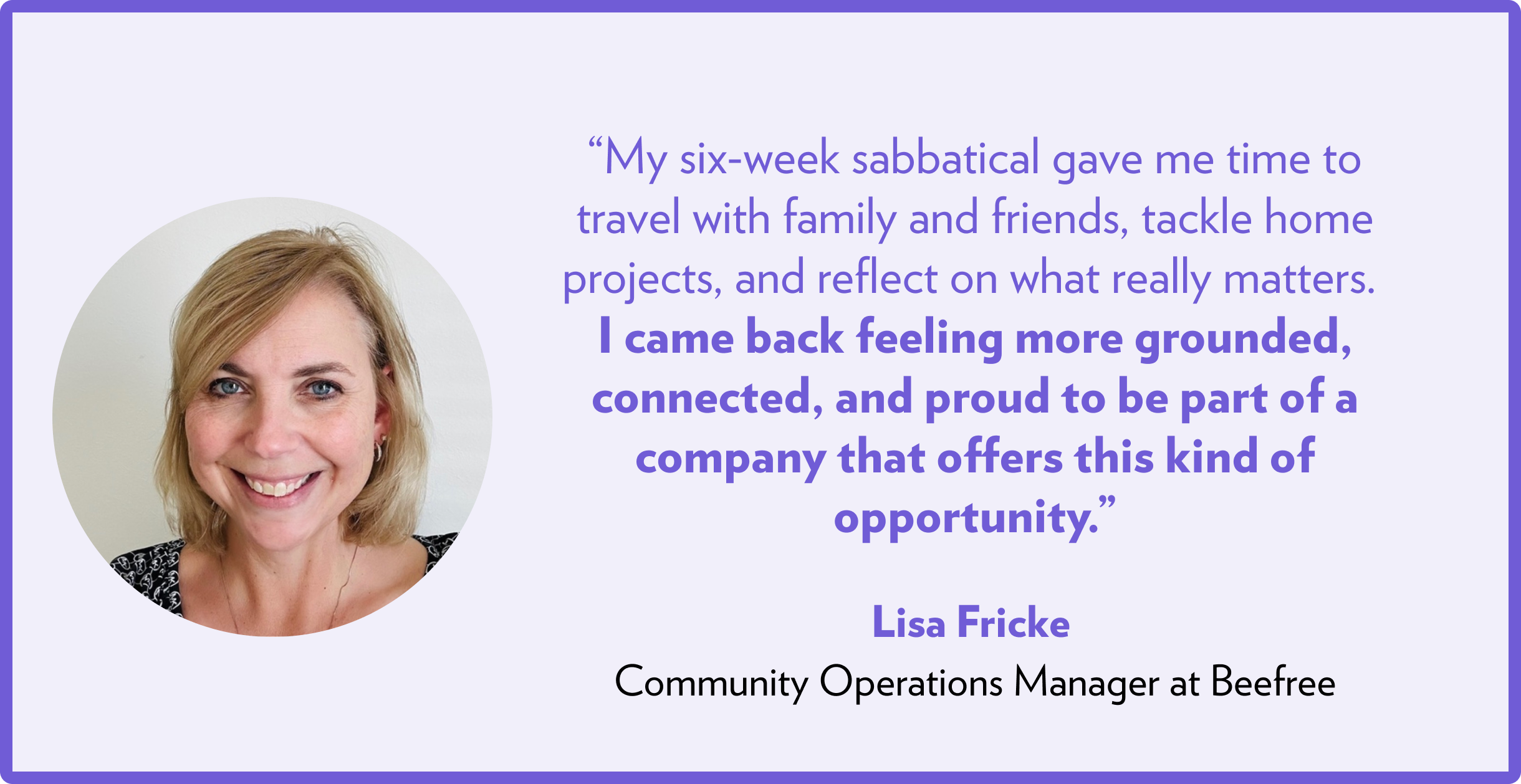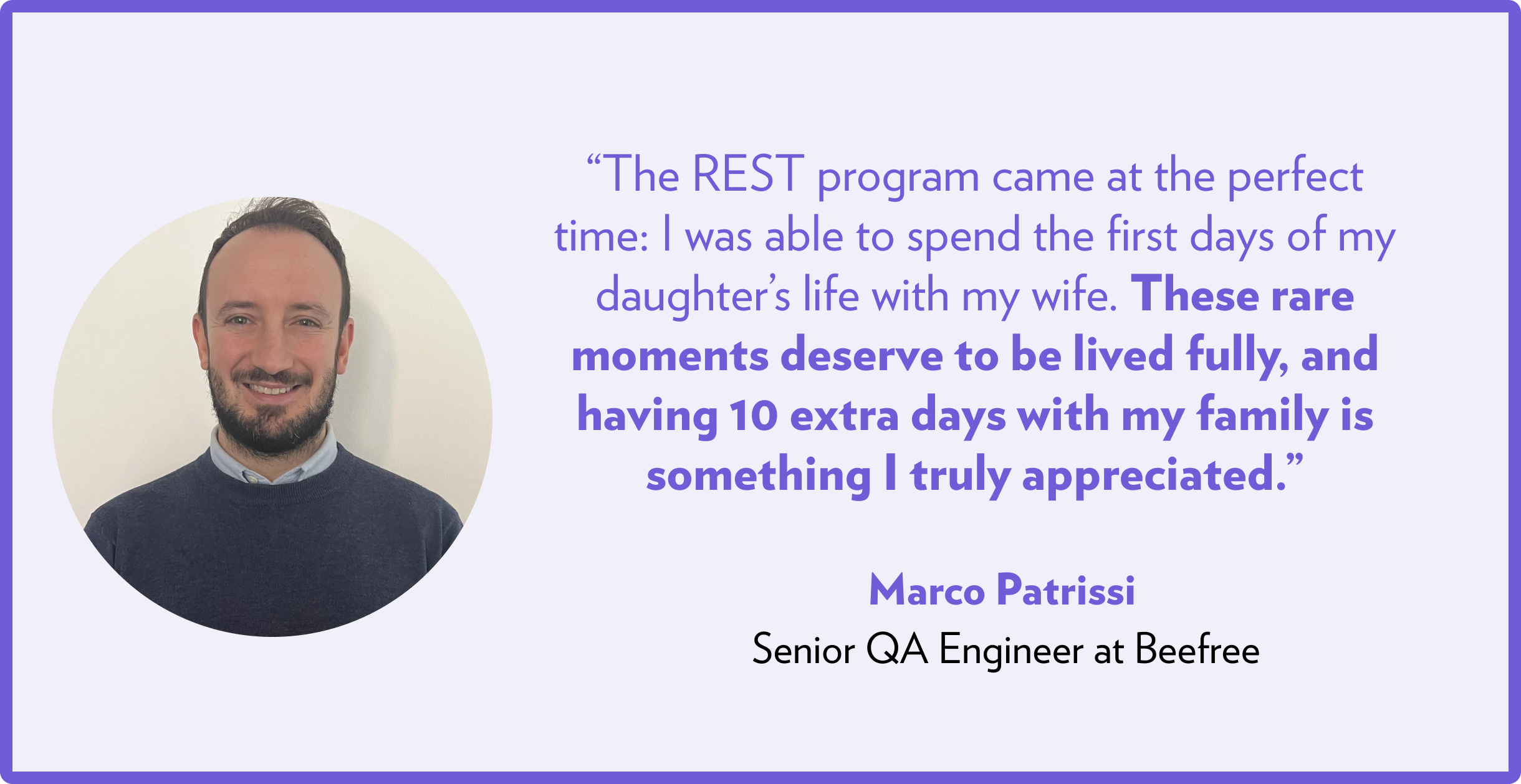We built a new, people-first time-off program. Here’s why
Different countries, different labor laws. But your need for care, grief, or deep rest? That’s universal.

At Beefree, we’ve built a new kind of time-off program. We call it REST. But before I explain what it is, let me tell you why we needed it.
If you’ve worked in tech—or honestly, almost anywhere—in the past decade, you know the rhythm. Hustle. Growth. Change so fast your head spins. Even in companies like ours, where we try to keep balance, the undercurrent is constant: there’s always more to do. More features to ship. More customers to support. More, more, more.
But here’s the thing: people aren’t infinite. We have bodies. Families. Health concerns. We have kids who get sick, parents who need care, friends we want to see, passions we’d like to pursue. And when work eats every corner of your life, those things wither. Or you do.
So we started asking: what if time off wasn’t the exception you had to fight for, but the expectation? What if real rest was part of the company’s operating system—not just a perk bolted on top?
That’s where REST comes in: Recharge, Empower, Support, Thrive. A global, equitable time-off program that gives everyone on our team the same baseline—no matter what country they live in, or what their labor laws say.
About Beefree:
At Beefree, we help people create beautiful, high-performing emails and landing pages: quickly, collaboratively, and without writing a single line of code. Our visual builder is used by thousands of teams worldwide, ranging from marketers at small nonprofits to global enterprise brands. We’re a fully remote scale-up company with roots in Italy and a strong presence in North America
Check out our PFJ Profile or visit our website to learn more about Beefree and the work we do.
Why meaningful time off matters
Even in a company like ours, where we strive to keep things balanced, the reality of working in tech (and building something that aims to scale fast) comes with intensity. Change is constant. New challenges come up often. As Molly Graham put it: "The rules never stay the same for too long. You’re cycling through anxiety, fear, euphoria, boredom… and that’s completely normal."
Normal, maybe. But sustainable? Not without breaks. Not without the ability to step away, fully, and return whole.

So we asked ourselves: what would it look like to create a company where taking a real break is expected, not exceptional? And what does a fair time off program look like in a globally distributed team?
The global team challenge: different countries, different rules
One of the biggest challenges of being a distributed team is that your legal context changes depending on your country of employment. For example, in Italy, parental leave is protected and extensive. In the U.S.? Not so much.
The same goes for medical leave, caregiving, or bereavement. In some countries, the law covers a lot. In others, it’s… minimal or non-existent. And when you’re a tight-knit team, this starts to feel a little awkward: "Wait, why does my teammate get 5 months fully paid, and I don’t?"
That’s when we realized: we can’t change labor laws, but we can choose to go beyond them.
With REST, we’ve introduced a standardized baseline for time off that covers six key areas:
- Parental leave
- Caregiving leave
- Medical leave
- Bereavement leave
- Volunteering leave
- Sabbatical leave
And we offer these benefits for everyone, regardless of whether your country mandates them or not.

The sabbatical, and why it’s more than “time off”
One of the most appreciated parts of REST is our paid sabbatical leave, which starts after 3 years of tenure. It’s not just a month off, it’s a recognition that people need deep rest, not just long weekends.
You can use it to travel, study, take care of someone you love, or just be offline for a while. The time increases with seniority: 4 weeks after 3 years, and up to 8 weeks after 20 years. It’s a big commitment for a small company, but it’s also a long-term investment in our people and in our ability to be a resilient organization, able to function even when key people step away for a while.
Building resilience, not just wellbeing
One of the things we’ve learned is that a program like REST only works if you have the right culture underneath.
We didn’t start here. REST is the outcome of years of work, starting with our shift to a flexible, hybrid, and then more and more remote way of working. Over time, we’re continuing to build a culture of trust, documentation, and transparency. There’s still a long road ahead of us, but it’s what has made this possible.
We ask each person going on sabbatical or extended leave to create a transition plan. They work with their manager to redistribute work, clarify responsibilities, and ensure continuity. And it works, because people care and they show up for each other.
And that’s the kind of company we want to build. One where your teammates have your back. One that doesn’t fall apart if someone takes a month off. One who believes being people-first is not charity, it’s part of our strategy.

The results so far
The response has been overwhelmingly positive. Employees have embraced the program with maturity, excitement, and gratitude. They’ve proven that when you trust people, they rise to the occasion.
We’ve seen teams get even better at collaborating and sharing knowledge. And we continue to have a strong retention rate, because people feel seen and supported. Because they know we’re in this together.

If you’re thinking about doing something similar…
Start with your values. Ask: What kind of company do we want to be? How do we treat people when they need rest, care, or space?
Then look at what you can do. You may not be able to mirror the most generous policies in every country. But you can raise the bar. You can create equity within your organizations — and you can show that you care.
We’re still learning, and this is just the beginning. But so far, betting on REST has been one of the best decisions we’ve made.
